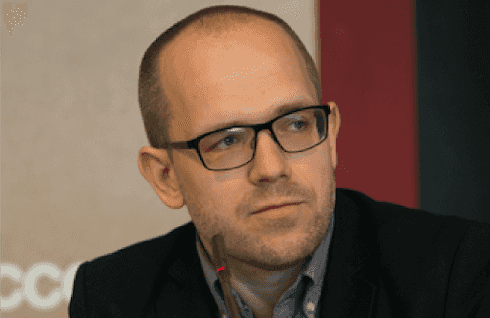
My perspective on the Allende legacy derives primarily from the two years of research I’ve done for my podcast called The Santiago Boys. This podcast was my attempt to use Project Cybersyn – Allende’s effort to manage the nationalized enterprises using computers and telexes – as an entry point into a much bigger story. That story was of a democratic and socialist government can address the questions of technological sovereignty.
So while others will speak about the importance of Allende’s efforts to restore economic and political sovereignty, we shouldn’t forget that, at least in light of today’s challenges and the growing power of Big Tech, his government’s efforts to build a different technological world order also have much to teach us. Had his project been allowed to work, we would not be stuck with the political problem that is Silicon Valley.
These efforts took many forms. On the global scale, they involved the government’s efforts to steer the other members of the Andean Pact towards joint action against multinationals, including pushing them to share intellectual property. Just six weeks before the coup, Orlando Letelier, then Allende’s foreign minister, even floated an idea of an international institution that would be akin to the International Monetary Fund but for technology and with the interests of the Global South at its core. As Allende put in a famous interview he gave to the Italian daily newspaper La Stampa, “we have the right to pursue our own solutions.” This international institution was supposed to make that right meaningful.
Allende’s fight for technological sovereignty also involved the bold and risky effort to nationalize ITT, the tech giant of its era. This set the company against Allende, and it mobilized its connections in Washington to prevent his victory and, later, do everything to weaken him politically. Instead of having ITT run by managers in the interests of shareholders in the US, Allende wanted to empower its workers and engineers, letting them set the strategic direction of the company so fundamental to Chile’s economic development.
Plenty of technological projects started under the previous government of Frei Montalva got radicalized. The most interesting of them was Intec, which sought to mobilize the power of scientists, engineers, and designers in order to boost the technical competency of the Chilean state-run enterprises and its ministries, lessening their dependence on foreign technology. This reveals yet another important dimension to Allende’s legacy: the fact that so much of its thinking about technology was shaped by dependency theory, the only framework that allows to see the geopolitical and geoeconomic dimensions to what is otherwise often presented as the politically neutral process of innovation.
The most famous of Intec’s initiatives was Project Cybersyn, whose reconstructed Operations Room is being exhibited in Santiago this week. It was a bold effort to build the software with which to power the nationalization program of Unidad Popular: by relying on computers and telexes, it was possible to bring stability to an economy that was being destabilized from within and without by all sorts of enemies, from ITT to CIA to Patria y Libertad. That a project of this scale and sophistication could even be built in a country that was facing an invisible embargo is testament to what was lost as the coup brought an end to Unidad Popular.
The realisation of that original Santiago vision today would certainly require newer and better software. Yet the approach’s basics – the idea that technology is geopolitics by other means; that technological progress is no guarantee of social and economic progress; and that power is what allows some countries to innovate and condemns others to stagnation – remain highly relevant in our own world of Big Tech.
Granted, Allende was hardly a tech wizard. In fact, he made plenty of tech blunders – at one point even inviting ITT to check his office for bugs. Yet it was under his leadership that a minor Latin American country systematically pursued a geopolitically informed technology policy – and didn’t shy away from confronting powerful corporate actors.
It’s this bold stance – combined with an intellectually dynamic framework furnished by dependency theory – that made Allende’s demise a tragedy. The 1973 coup not only deprived Chile of its precious democracy – it also robbed us of a world in which countries could stand up to powerful companies, defend their own technological sovereignty, and harness innovation to build a more equal and just world.
What we got instead was a world run by half a dozen ITTs – all legitimised through the notion that innovation is a matter of ideas and ideals, not of sheer power relations and military strength. For all his shortcomings, Allende, who won the Chilean elections despite opposition from both ITT and the CIA, knew that innovation in the real world was not at all like this. And that’s why, for all his contributions to democratic socialism, his greatest legacy may be in mobilizing the Santiago School, showing the world a path towards democratic technology.
Evgeny Morozov is an author and the creator of “The Santiago Boys”, a podcast that explores Salvador Allende’s tech legacy. He is also the founder and publisher of the Syllabus, a non-profit knowledge curation initiative.



